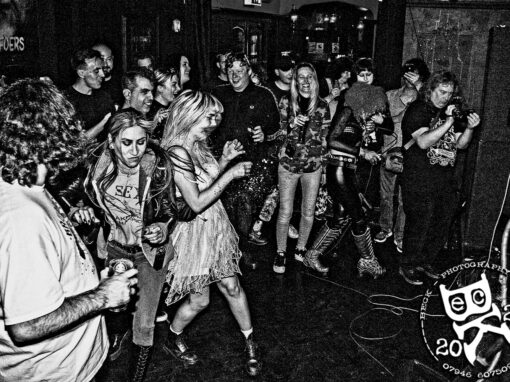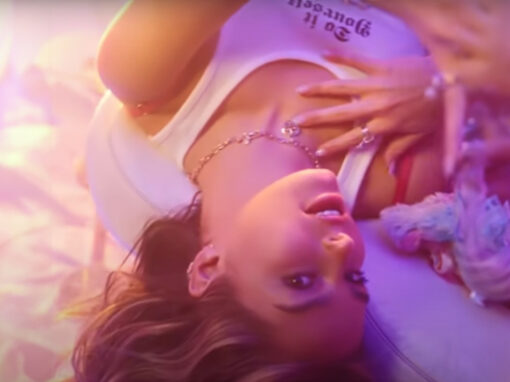Image by Noah Näf on Unsplash
“I won’t be a rock star. I will be a legend.” – Freddie Mercury
Over three decades after his passing, Freddie Mercury remains more than a rock star – he’s a symbol, a blueprint, and a challenge to conformity. As the lead vocalist of Queen and one of the most singular voices in music history, Mercury’s influence stretches far beyond the charts. His legacy is stitched into fashion, queerness, performance art, gender expression, and the very idea of what it means to take up space.
In an era of curated identities and hyper-visible celebrity, Mercury’s unapologetic presence still feels radical. His story isn’t just one of musical genius, it’s one of self-invention, resistance, and spectacle.
The Voice That Changed Everything
Freddie Mercury’s vocal range was astonishing, a rare four-octave powerhouse that could soar from operatic highs to gritty rock growls. He wasn’t just a singer; he was a technician of emotion, bending genre and melody to his will. Tracks like Bohemian Rhapsody, Somebody to Love, and We Are the Champions weren’t just hits, they were sonic events.
But it wasn’t just what he sang. It was how. Mercury’s voice told stories, revealed vulnerability, and carried immense power. In a world where masculinity often meant restraint, his vocal drama was a rejection of that norm. He was full of glitter, anguish, ecstasy, and control.
Queerness and Gender Play
Freddie Mercury never officially “came out” in a public, political way and yet, his life and performances were undeniably queer. From his flamboyant stage costumes to his commanding femininity and masculine confidence, Mercury carved out a genderfluid persona before that language had cultural traction.
In the 70s and 80s, queerness in mainstream music was rare, and often coded. But Mercury lived in the liminal. He wore nail polish and leather, leotards and military jackets. He danced between camp and control, soft and sharp, commanding the stage with a kind of performative duality that predated and influenced generations of pop stars.
Today, artists like Harry Styles, Sam Smith, Janelle Monáe, and Rina Sawayama stand on ground that Mercury helped lay. His image, once deemed ‘too much’, is now a touchstone for artistic freedom and self-expression.
Fashion Icon, Trend Setter, Never a Follower
Mercury was fearless with fashion. He understood clothing as theatre, as a way to amplify identity and blur lines between fantasy and reality. His stage outfits were dramatic, genre-bending, and often camp, incorporating everything from sequin bodysuits to regal capes and crowns.
His fashion sense has influenced everyone from Lady Gaga (who literally named herself after Radio Ga Ga) to Lil Nas X, who channels Mercury’s electric flamboyance in red carpets and videos alike. You see echoes of Mercury in gender-bending couture, in TikTok trends, in the ways artists today make their outfits part of their storytelling.
In 2023, this legacy was brought back into the spotlight through “A World of His Own” – a landmark exhibition and auction at Sotheby’s London. For weeks, fans lined the streets to walk through rooms filled with Mercury’s most iconic stage looks, handwritten lyrics, and personal treasures like his beloved Japanese kimonos and art collection.
I was lucky enough to go along, and his plethora of clothes, trinkets and documents was breath taking.
Death and Immortality
Freddie Mercury died in 1991 from AIDS-related illness. A tragic ending that also marked a cultural turning point. His openness about his illness, released just one day before his death, humanized the AIDS crisis at a time when stigma and silence were deadly.
His passing solidified him as a martyr figure in queer history, but his legacy hasn’t been defined by tragedy. Instead, Mercury is remembered for joy, spectacle, and a defiant refusal to be small. His worldwide fame from biopic blockbusters (Bohemian Rhapsody, 2018) to memes, tributes, and TikTok audios, proves that his spirit is not only preserved, but alive.
More Than Nostalgia
Freddie Mercury’s legacy isn’t stuck in the past. His cultural fingerprints are everywhere: in the dramatic flair of modern pop performances, the embracing of fluid fashion, the anthemic rise of queer artists, and the renewed love for live, big-stage drama.
He taught us that performance could be power, not in a self-serious way, but in the freedom to play. And perhaps that’s his greatest gift to pop culture: a reminder that being yourself is never too much, that the spotlight is a place for contradiction, and that legends aren’t born they’re built in rhinestones, risk, and riotous sound.
For more stories on People click here: https://illuminatedmag.co.uk/people/




